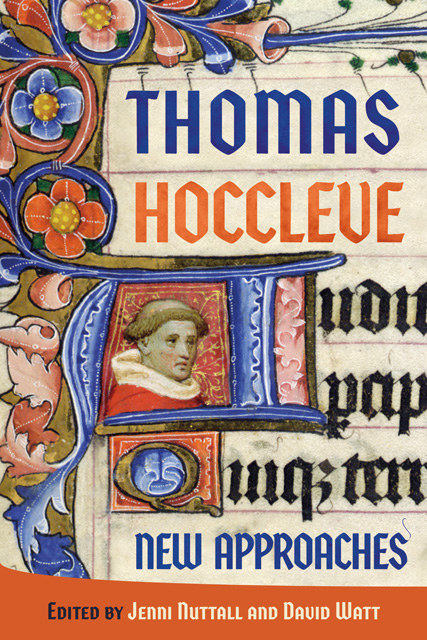5 - Hoccleve’s Series and the Unanticipated Woman Reader
Published online by Cambridge University Press: 11 January 2023
Summary
At the start and end of his literary career, Thomas Hoccleve appears to pass over Christine de Pizan in favour of Geoffrey Chaucer, absorbing his adaptation of her Epistre au dieu d’amours into Chaucerian convention. His earliest datable work, L’epistre de Cupide, is a loose translation of Christine’s poem. But rather than naming its primary source, which had appeared just three years earlier, Hoccleve instead invokes the authority of the dead Chaucer. Nearly twenty years later, he stages the Series as a palinode for L’epistre, just as Chaucer stages the Legend of Good Women as an apologetic retraction of Troilus and Criseyde and his translation of the Roman de la Rose. Since L’epistre serves as the impetus for this Chaucerian convention, Hoccleve often has been understood to promote Chaucer’s poetic reputation at Christine’s expense. Even as critical debates continue to circle around the question of tone in L’epistre or the sincerity of the apology in the Series, they therefore have tended to rest on the shared assumption that he uses the woman writer to get closer to his father Chaucer, or to promote an increasingly masculine English literary culture.
Yet Hoccleve does not shape his literary career around L’epistre de Cupide to bolster Chaucer’s poetic authority, or his own. Rather than the woman writer, it is the figure of the woman reader that most informs Hoccleve’s engagement with Christine. This female figure – defined by the tendency both to neglect deeper meaning in favour of the carnal surface and to engage in euphemistic interpretation which imputes deeper meaning where it does not belong – long has been intertwined with the convention of the palinode or poetic retraction. By attending to the history of this trope as it extends beyond Chaucer in both directions, reaching back to the Ovidian commentary tradition and forward to Christine, we can better understand Hoccleve’s staging of the Series as a palinode, as well as the nature of his relationship to Chaucer and Christine alike. While medieval commentators defend Ovid’s morally dubious poetry by deflecting blame onto the carnal-minded woman reader, Christine invokes this female figure to critique the Roman de la Rose, a poem that claims to encompass all of the Ars amatoria.
- Type
- Chapter
- Information
- Thomas Hoccleve New Approaches , pp. 105 - 123Publisher: Boydell & BrewerPrint publication year: 2022



